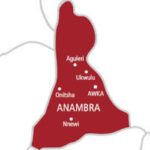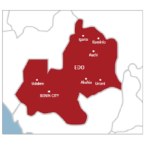John Cardinal Olorunfemi Onaiyekan was the Archbishop of Abuja until he retired recently. He was the president of the Catholic Bishops Conference of Nigeria, president of the Christian Association of Nigeria (CAN), co-chairman of the Nigeria Inter Religious Council (NIREC). He has also been active in the National Peace Committee working towards peaceful general elections coming up in the next few weeks. In this interview, the cardinal spoke on his early life, experiences, the 2023 elections and other national issues.
You started schooling at Kabba, where you were born, then suddenly, you moved to Aleide in Benue for secondary school, where you set a record that has not been broken. How would you describe your early days?
We can talk about that later. Two days ago, I celebrated my 79th birthday and it dawned on me that a lot of water has passed under the bridge as I looked at those around me.
As you rightly said, Kabba, where I was born, is a Yoruba community, but in those days, it was part of northern Nigeria. You would recall that northern Nigeria was divided into provinces, one of which was Kabba. Geographically, it coincides with what we now call Kogi State. It means that Kabba had some kind of resonance with the early colonial administrators.
Group flays EFCC over ‘media trial’ of Kogi First Lady
FG to upgrade NYSC orientation camps nationwide – Minister
It is a very traditional town ruled by a king, who we call the Obaro of Kabba. There are other paraphernalia of office. It is said jokingly that Kabba is a town where everybody is a chief, and if you are a chief in Kabba, you are called an Oba, so the whole place is full of Obas.
But I was born into a rather simple family. My father was a farmer; he was not a rich man but he was highly regarded in the society. He eventually ended up being able to buy a bicycle.
Somehow, he became the head of the Community of Catholics in Kabba. He took a position we call Baba Egbe in Yoruba, meaning the father of the community.
He was the Baba Egbe of the Catholic Church. There were two main churches in Kabba at that time – Catholic and Anglican. As the Baba Egbe of the Catholic Church in Kabba he had a significant prestige. It was on that basis too that he was a member of the Native Authority Court.
I remember that as a child I would sit between his legs in the court while the Obaro presided over the Native Authority Court. I always knew my father as somebody with high respect. My mother too was a simple woman.
Traditionally, they would have been considered noble people because my mother’s grandfather was an Obaro of Kabba, my father’s mother was a daughter of an Obaro, so from that point of view, we would have considered ourselves noble people, but we didn’t take that seriously.
What was important for me was that my father was the head of the Catholic Church, which means that the doctrine of the church was very much imbued in me from early childhood.
My father took me to primary school very early. In fact, I disturbed him so much that he took me to school in January 1949. I got there and was disqualified because my hand couldn’t go round my head and touch my ears. I really got very unhappy going back home.
But I disturbed him so much and got a coaching from a friend nearby, such that he took me back to school and I was accepted in Primary One in June 1949.
By December 1949, I had finished Primary One and was the best in class. I moved to Primary Two, after which we started what they called Standard One.
We walked to school; nobody had a car. The school was the only one in the village, unlike today when some children go to special and beautiful schools. Amongst us it was all the same.
We studied and played together. Looking back, it turned out that those of us who were going to school were actually lucky because even at that time, majority of the children in Kabba were not going to school. I finished primary school in Kabba in 1956.
Let me add that in 1956 when Queen Elizabeth visited Nigeria, I was among the little young boys drafted to go from Kabba to Kaduna to welcome her.
We went there and rehearsed for two days in the sun so that when the Queen happened to pass in front of us we would wave the Union Jack. We considered that a great honour. Five or six of us were chosen from Kabba.
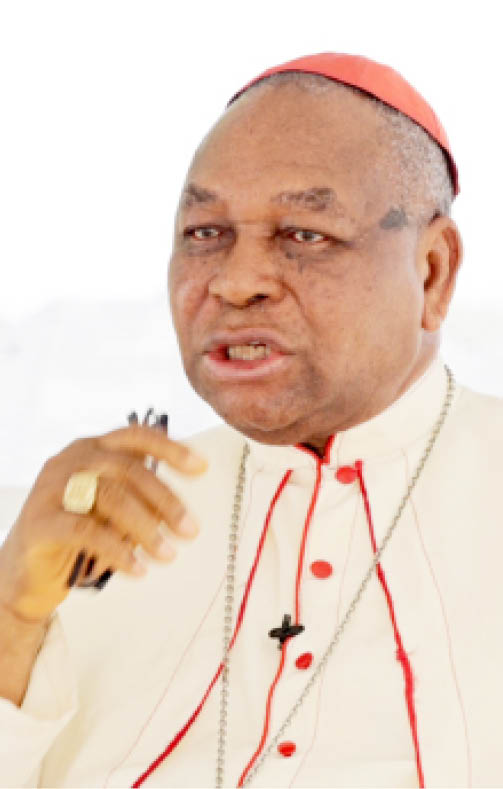
Was that your first trip outside your community?
My elder sister, Mary, was already in the Queen of Apostle College, Kaduna, which is now called Queen Amina College. She was already in Form Two when we went there.
In 1956 something important happened. We had two entrance examinations; the first was Common Entrance Examination. As a result of that examination and the interviews, I was given admission to Government College, Keffi, which was the desire of every young boy, not only in Kabba but all over northern Nigeria.
I realised that in those days, Government College, Keffi was built for the best children. There was also a college in Zaria for special children. I was told that children of emirs often ended up in Barewa College, but in Keffi, it was the best boys from all around. And in those days, the school was totally free.
There was a second entrance exam into a Catholic secondary school – Saint Michael’s Aleide. Again, I passed and was given admission. When I told my father, he asked which of the two I wanted.
I told him that if not because we did not have money I would have gone to Saint Michael’s, but since we were poor I would go to Keffi. I said so because my elder sister was in Queen of Apostle College, Kaduna and I saw the great effort and problem it was causing my parents to put her fees together. And she was supposed to pay half of the fees. It was so bad that I didn’t want to add my own. That was where the direction of my life began to take a course.
My father felt very sad at my reply but he knew that I was telling the truth. We did not have money, so he wouldn’t have been able to pay any fees. He told me to go and tell the Reverend Father, a Canadian.
No; he was the parish priest of the village. His name was Paul Emil
Champine. So, I went there and I told him, but I think my dad had spoken with him already, explaining the problem.
The priest asked what I would want to be when I became an adult. It was the first time that kind of question was put to me. Without thinking, I simply told him that I would like to be a Reverend Father. He looked at me and asked me to confirm what I said. And I said yes. He said that in that case I should get ready to go to Aleide. I went back to the house and told my father. He jumped up from his chair and asked if I actually told the priest that, and I said yes. I thought he was angry with me for wanting to be a priest, but he asked if I didn’t tell him that he told me to say so?
From that point, everything started. I went to Aleide and the parish supported me. In fact, they even gave me towel, singlets, everything.
Yes. But I was not the only one, other boys were going to Aliede, who the bishop organised to carry in. They picked us from the whole of
Kabba Province.
I was on scholarship for the six years I was in Aliede, so my father didn’t have to pay a kobo in terms of fees.
You said you gave a spontaneous answer to the priest, did you ever regret the decision to forego the secular path for priesthood?
I have said it several times that the desire to serve God as a priest didn’t start on that day; it had always been in my mind. I remember that my mother said that as a small child, while playing with other children, I used to put a small box on the ground and go through the rituals of what the Reverend Father did at the altar. So I never regretted my decision. Was it always rosy? Oh no, but I grew up to know that when you put your head to do something, especially something with God, you go through what it costs to get it done.
I had a nice time in secondary school for six years. I was always top of my class; again, to my surprise because I wasn’t working harder than everybody else. But it always happened that way.
In those days, there was what they called Higher School Certificate (HSC) examination. The result came out and that’s where the big story began because I turned out to be the best student in the whole North. And of course, the northern authorities decided to display their best character by getting me a place in Kings College, Lagos, which was perhaps the best in Nigeria.
There was HSC in Government College, Keffi but I was given admission at Kings College, Lagos. Three of us from our college did very well and were given admission to Kings College.
But you decided to go to the seminary, isn’t it?
Again, that is more or less the same story repeating itself. I was to go and study Mathematics, Physics and Chemistry, which were my best subjects, but my mind came back to the original idea that I wanted to be a priest.
This time, I went to the bishop, not the parish priest and told him that I still wanted to be a priest. He said something that has stayed with me. He asked, “John, you want to be a priest? From now on I take all decisions for you.” I thanked him and got ready to go to the seminary in Ibadan.
Meanwhile, they were calling my name in Kings College, Lagos during assemblies and my friends kept telling them that John was not coming as he had gone to a seminary. It became the talk of town because in those days, for a young boy to be admitted to Kings College and he was rejecting the offer to go to a seminary was considered rather unusual. But let me say that there was nothing unusual about it. It was simply my natural decision. That was the period when something happened, which I try to clarify whenever I have the opportunity.
While I was waiting at home to go to the seminary around December
1962, an emissary was sent by the Sardauna from Kaduna to Kabba. In those days they were called parliamentary secretaries.
When the man came, they summoned my father to the district officer’s office.
He went immediately to report to the Reverend Father that they had come from Kaduna to look for John. The priest told him to send John to him and tell the gentleman from Kaduna to meet him. That was what happened.
At the parish priest’s house, the young man congratulated me, saying the premier was very happy with me. He asked if I was getting ready to go to Kings College and do the North proud. I thanked him but said I was very sorry that I was not going to Kings College. He asked what was happening and I explained that I was going to the seminary in
Ibadan. He asked why I wanted to go to the seminary and I explained that I wanted to be a priest because I wanted to serve God.
This gentleman kept quiet and looked at me. I was getting scared over what he was going to do. He left after saying, “God bless you my son.” I don’t know what report he gave to the Sardauna, all I know is that emissaries were no longer sent to me.
And you never had any contact with the Sardauna after that?
There was no direct personal contact with the Sardauna. Sometimes the story has been told with a bit of flowers, which are almost mythological – that Sardauna himself took the car and drove all the way to Kabba. No such thing happened.
What happened at the seminary?
My seminary course was in two chunks. The first two and a half years I was in Ibadan and did Philosophy. It was while there that my bishop arranged for me to continue my studies in Rome. I went to Rome for four years in Theology and completed my studies for priesthood.
How was Rome for you?
It was fantastic. When I said goodbye to my parents they were all very happy and sad. They were sad because they were not going to see me for a long time. It was not like today when people come home on holidays. We spent four years in Rome without coming home.
All the wonderful things I saw in Rome were impressive, such as those big churches and circular monuments. Rome is not only the headquarters of the Catholic Church, it was also the headquarters of the Roman Empire. We used to go round to those places to understand the whole history of Rome as a pagan empire and centre of the Catholic Church. So being in Rome was an education.
As a young black man, did you experience discrimination?
The hostel I was staying was full of young boys like me from all over the world – blacks, Indians, Chinese and Australians. We were all there as students from different seminaries.
There was a general high level, not only of academic performance but also of moral behavior. So it was a beautiful place to be.
I kept finding myself doing very well without any special effort. It was from there that I realised there was such a thing as God’s gift. It has helped me all my life.
Given the religious complexity of Ilorin, where you served, would you say it was a training ground for the inter-religious peace work you have done? Did you learn anything from that posting?
Yes and no. I said no because before I was posted to Ilorin, I was already very much engaged in inter-religious dialogue. I was very much part of a group called the Nigeria Association for the Study of Religions. It was a forum of university lecturers – those who were teaching in the Department of Religious Studies, Islamic Studies and so on. We would gather every year for a conference and discuss things. We used to discuss in a very civil and nice way. There was no topic we could not talk about – Christians and Muslims together.
That was the first place I met (professor Ishaq)Oloyede. He was a young lecturer, but the person that really impressed me among my Muslim friends was a certain Professor I.B. Balogun.
Ilorin was good because all the time it was inter religious dialogue on the theoretical basis, but when I got to Ilorin, I saw dialogue in reality. I saw Christians and Muslims living together, sometimes fighting, but most of the time just struggling to survive in a difficult country. Nigeria has always been a difficult environment.
As a bishop in Ilorin, I naturally became a leader in the Christian community. Sometimes there were issues, which were also provoked by government’s policies that knocked the heads of Christians and Muslims together.
I have held positions of leadership among Christians. For quite some time I was the chairman of the Christian Association of Nigerian (CAN) in Kwara State.
I made friends with leaders of Islam in Ilorin. The one I remember most is the Grand Khadi of Kwara State, the late Alhaji Orire Abdulkadir; may God rest his soul.
Orire was a very convinced Muslim, but he also knew that the young Bishop Onaiyekan was a very convinced Christian, so we talked to each. I learnt from him, and I hope he learnt some things from me too. You don’t have to sacrifice your conviction to be able to speak like a respectable individual with somebody of a different faith.
We realised that most of the quarrels and problems were caused by people who were not able to train their emotions with regard to religious issues. You don’t have to be quarrelling with people. We tried our best. He was like a leader of the Islamic group in Ilorin.
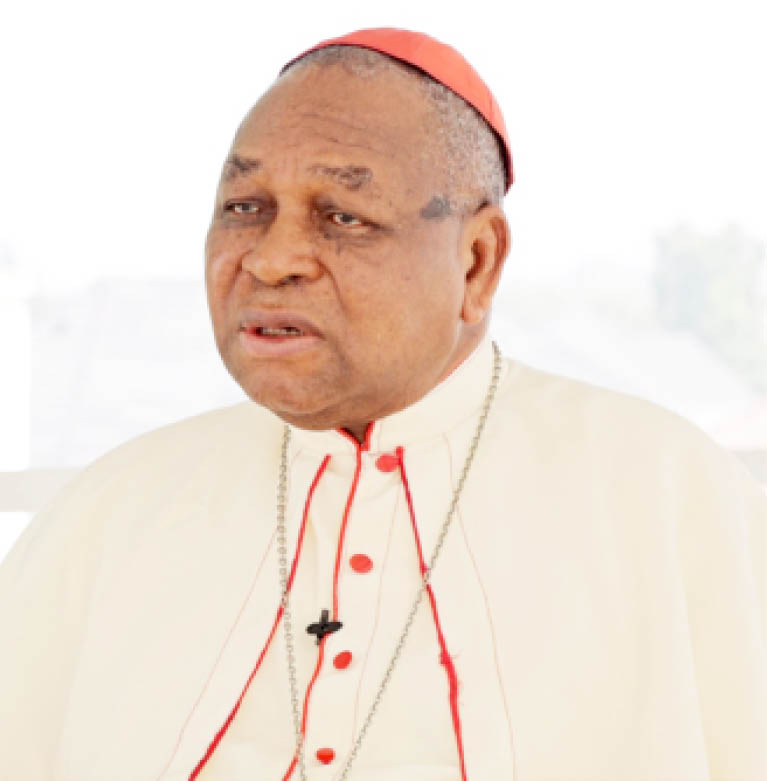
Tell us your experience as the first Archbishop of Abuja, where power is at display. How did you cope with that position?
It was in 1990 and I had already served seven years as a bishop in Ilorin. A message came from Rome that the Holy Father had appointed me to serve in Abuja. My title was Coadjutor Bishop of Abuja, meaning a bishop sent to assist another bishop. The bishop who was here at that time was Cardinal Ekandem.
But normally, a coadjutor has a right of succession, so he is appointed when a bishop is about to retire. So, a coadjutor is more or less to understudy an incumbent archbishop. That was how I came here.
During my first year here I was still looking after Ilorin with the title of apostolic administrator, but eventually, I settled here. And within two years, the cardinal retired and I became the substantive Bishop of Abuja.
At that time, Abuja was still developing. There were Christians but no church buildings. So we needed churches and had to find ways and means of gathering enough resources to be able to keep up with the pace of development. That was the major challenge in Abuja.
That was how we started from one parish and expanded.
I also know that when the leaders of our church in Rome decided to send me here, they knew that this place was going to be something else. They wanted somebody who could manage the affairs of the place as a Federal Capital Territory. So I took it as a special assignment.
If I had any Christian-Muslim concern, it was not on the level of Abuja, it was more national. That is where the question of my NIREC comes in.
Being in the seat of power, how was your relationship with the government? There would have been instances you criticised the government or seen to be opposed to certain policies. For instance, it appeared you were opposed to the third term bid of former President Obasanjo.
Yes, I opposed the third term, but I put it nicely, saying, “Obasanjo doesn’t want a third term and you people are pushing him and talking nonsense.”
On my relationship with the government, I had to distinguish between myself as the Archbishop of Abuja, issues and concerns of the Catholic Church and the authorities, mainly the Federal Capital Development Authority (FCDA).
Our major issues should be about getting land for schools, churches, hospitals and other issues.
The higher level is that Abuja is also the seat of the federal government, where policies that affect the whole country are made. As the president of the Christian Association of Nigeria I had to be part of any issue with regard to government policies that required response from the church.
Most of my interventions were not really my personal opinions but the church. Don’t forget that we have the Catholic Bishops Conference of Nigeria. We met twice every year, and the state of the nation was always an important point of discussion.
From those meetings, we always came out with very clear communiqués. I am told that even the government people always waited for what the Catholic bishops would say.
Don’t you think you are deliberately being a radical priest?
No. It is not being radical but opposing what is bad. We cannot settle for what is bad. And you don’t have to be radical to say no to what is bad. So whenever we have a government policy we think is not fair on the people, we cannot keep quiet, we cannot but protest.
We are not the only ones complaining, other people are also complaining. The only thing is that when the hungry poor man is crying, nobody will hear him, but maybe when the Archbishop of Abuja cries somebody will hear.
What do you think about the record of the current government?
Am I the only one critical of this government? I don’t think there is any difficulty making up one’s mind about this government because we have seen the level of insecurity. It is no longer news that corruption is still rampant and at the centre of the government.
Is the NIREC about your inter religious activities?
The NIREC is just one group that has tried to do something because the whole country has been completely factionalised as a result of the policies of government. I think that whoever becomes our president must realise that his first job would be to bring us back together.
Do you think there is hope among the people struggling to become president?
I am a believer in God; that is why I have hope. There are 18 candidates, so we have a wide choice now. However, realistically, we now probably have to be thinking seriously about four of them. In terms of promises and analysis of our problems, everybody has been saying the same thing.
They agree that things have not been going on very well, even the APC candidate; and I am very surprised. I hope he knows who is responsible for how things are.
One would have expected to hear something like, “We have ruled for eight years and have not done too well, so we are going to change the way we are doing things.” But we were told that they would build on where we are. That is not very encouraging.
Even the Peoples Democratic Party (PDP) gives the impression that everything was paradise until Buhari came. But we have not forgotten what happened. If things were paradise, how would Muhammadu Buhari have come out in the first place? So the PDP also needs an act of contrition.
The two parties need to be a little bit less arrogant in terms of their capability to change things. I think of a double-edged sword when I hear the APC and PDP talk about experience. What have their experiences done for us?
Is the National Peace Committee preparing itself for another crisis?
We have always been in the mood of preparing for crisis. Some people said signing of peace accord was a waste of time; that it is just a ritual that doesn’t make sense. But many people think it makes some sense. And I believe it makes some sense; at least we challenge people, whether they agree or not is another matter.
Do you have any fear?
No, but I am praying and hoping for the best. The Independent National Electoral Commission (INEC) has conducted previous elections; and in my assessment, some terrible things were done and results that came out surprised everybody.
So, even the new element of technology has to be carefully examined and handled. This is because we know that the fact that you are carrying some gadgets around does not mean there will be no hanky-panky game.
In fact, sometimes technology is the easiest way to rig; it is garbage in, garbage out. And I think I am not the only one seeing this.
We should not rely on one person to confirm the authenticity of the numbers. They ought to be a forum where others – opposition parties and stakeholders in the elections – can have their say.
If there is too much malfunctioning in those electronic gadgets, somebody must be held responsible.
You were in the 2013 conclave that elected Pope Francis.Tell us a little bit about what you cardinals do to elect a Pope
The procedure of the election of the pope is not a secret. There are books available you can buy to explain what happens. Before we enter the conclave we know what is going to happen, the process that will take place. The only thing that is purely confidentially is who said what, who did what and who voted who.
The procedure takes place in the Sistine Chapel. One interesting thing about the chapel is that it has a big painting on the wall behind the altar, of the last judgement, where God will send some people either to heaven or hell.
And it is a scary reminder?
When we are seated to start voting, they begin to call cardinals by name, one by one, starting from the most senior. The seniority list depends on how you were appointed, not necessarily your age.
But each cardinal is qualified?
That is one interesting thing about the conclave. It is an election in which everybody is a candidate. Any of us who go in there could emerge as pope. We look at each other, wondering who would be the next sheep to be slaughtered.
Is being a pope not a pleasant job?
Well, it could be pleasant but certainly not an easy job.
How come we never had an African pope?
It is because we joined the club only recently. Don’t forget that the Catholic Church is 2,000 years old; and 100 years ago, there was not a single cardinal in Nigeria. The first cardinal in Nigeria was Ekandem. When he died, Arinze came next.
And in the last conclave of 2013, Arinze couldn’t vote because he had turned 80. Any cardinal who celebrated 80th birthday cannot be in the conclave.
As an outsider, when I look at senior priests like you, it seems there is a lot of sacrifice on your part, but there is also relative comfort as the church treats you very well. Is it deliberate to remove the temptation of the outside world?
God has provided enough to make everybody comfortable. When we have people who are not able to get the minimum of decent living, it is because there are other people who have too much.
Now, the church is a place where we don’t allow anybody to consume too much, we try and give a decent standard of living.
Also, a priest is not married so that he won’t think about the education of his children. But sometimes, when you have a priest and his parents are very old and poor, our church allows assistance to such people because after all, the church should reach out to the poor.
But we will not be able to build a beautiful big house in the village for your parents; there is no room for that. So, since we have limited modest demands, we can easily cover it without going through unnecessary expenses.
As you said, in a way, it is to shield us from temptations. When I finished as the Archbishop of Abuja, I was not afraid of my future. In fact, it was a group of friends that put money together to build this house for me. So I don’t have to be looking for oil blocs.
How does one prepared for paradise?
You don’t have to be 80 before you prepare for paradise because it can come much earlier. We need to prepare, not only mentally but spiritually. This means that you and I should live a decent life. Make sure your daily relationship with your God is clean and smooth. That’s how to prepare. But different people have different ideas of how they ought to prepare. Everybody should be preparing for paradise, but when you reach 70, 75 and going to 80 you should know that it is around the corner.
What comes to your mind when you see flamboyant church leaders?
Those people are not in my own kind of church.
At 79 you have retired from active church work, what do you do?
I am no longer having the headache of running the diocese. I now do what I like, but I also know that my major occupation is to prepare for paradise.
I am not hoping to live for 100 years. If I reach 80 I have reached the summit of my years and I will not ask God to keep me much longer.
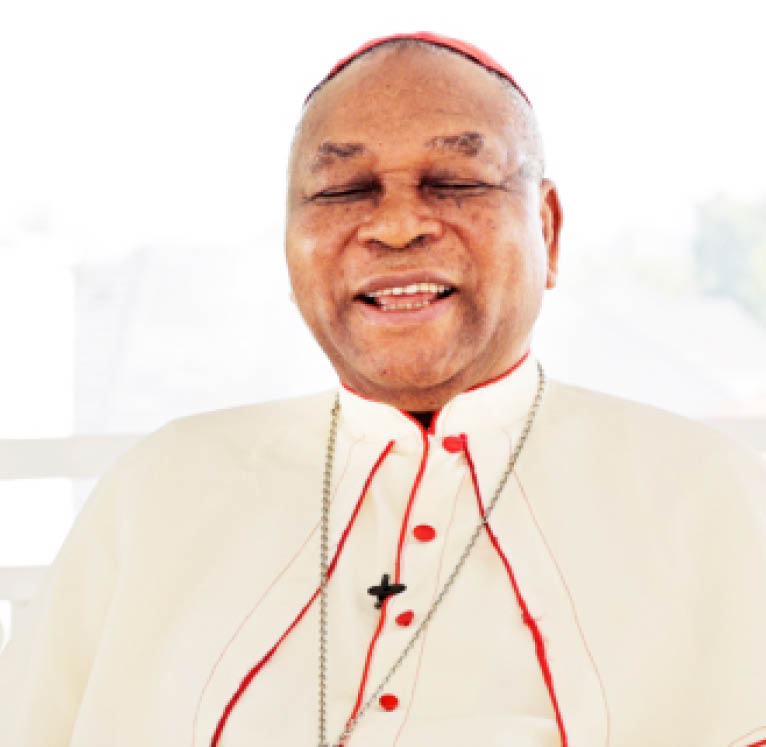
 Join Daily Trust WhatsApp Community For Quick Access To News and Happenings Around You.
Join Daily Trust WhatsApp Community For Quick Access To News and Happenings Around You.